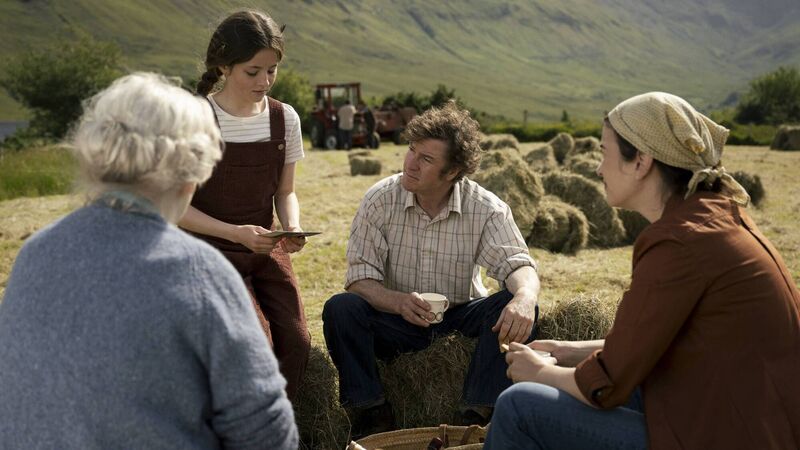Cork director takes the quiet approach to adapting John McGahern's last novel

Barry Ward and Anna Bederke with other cast members in a scene from That They May Face The Rising Sun.
John McGahern’s much-loved final novel is brought to the big screen by Pat Collins in That They May Face the Rising Sun, the tale of everyday life among a small Irish community.
In many ways, the West Cork filmmaker is the perfect candidate to adapt McGahern’s graceful, contemplative novel, portraying a period in the life of a rural lakeside community.







